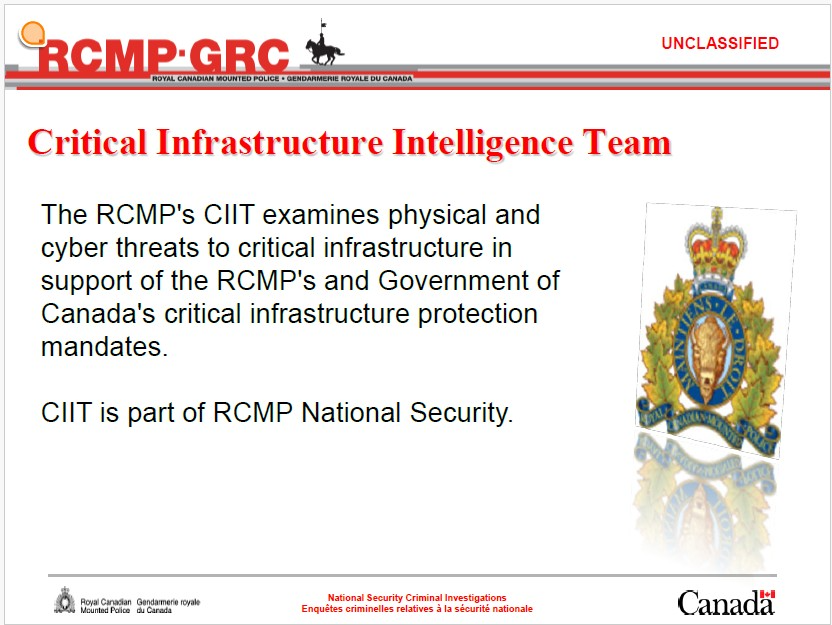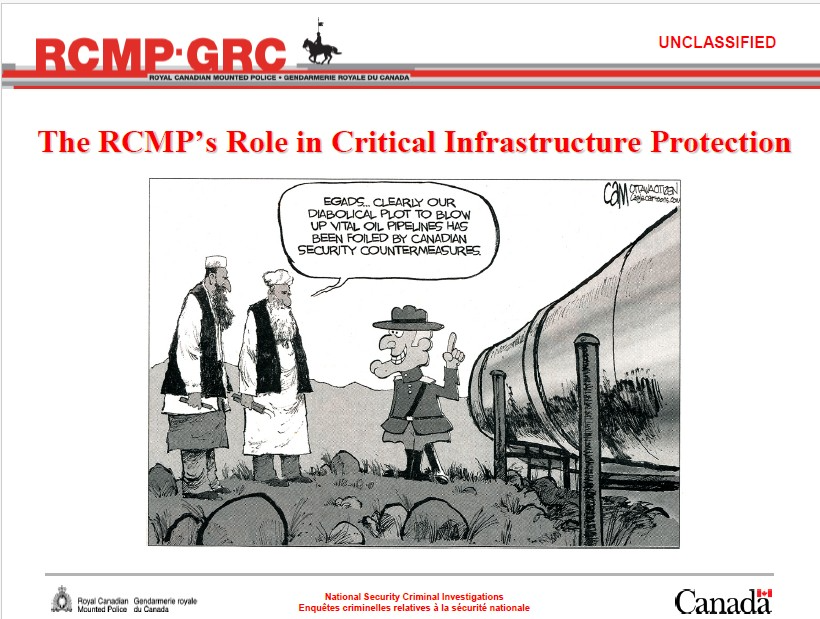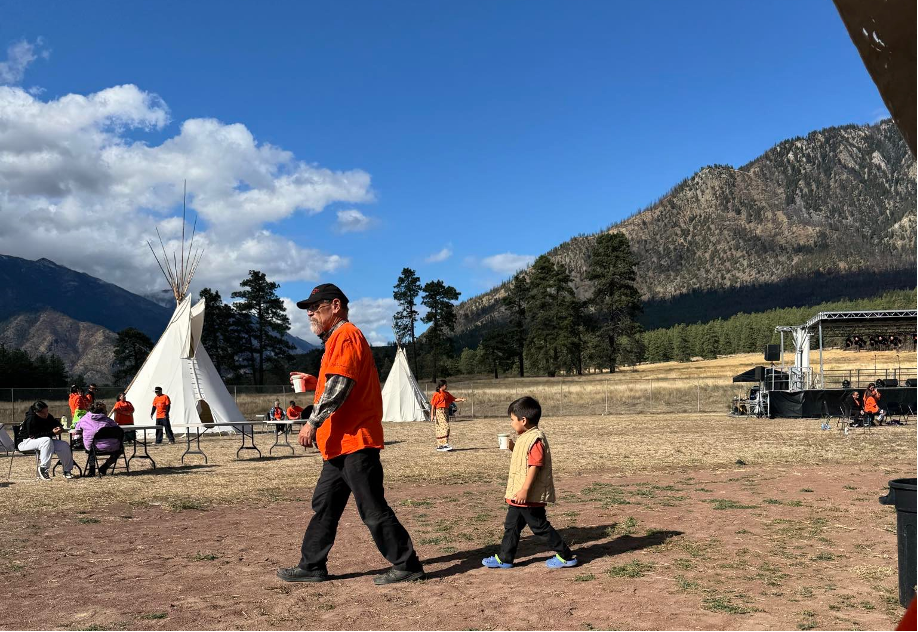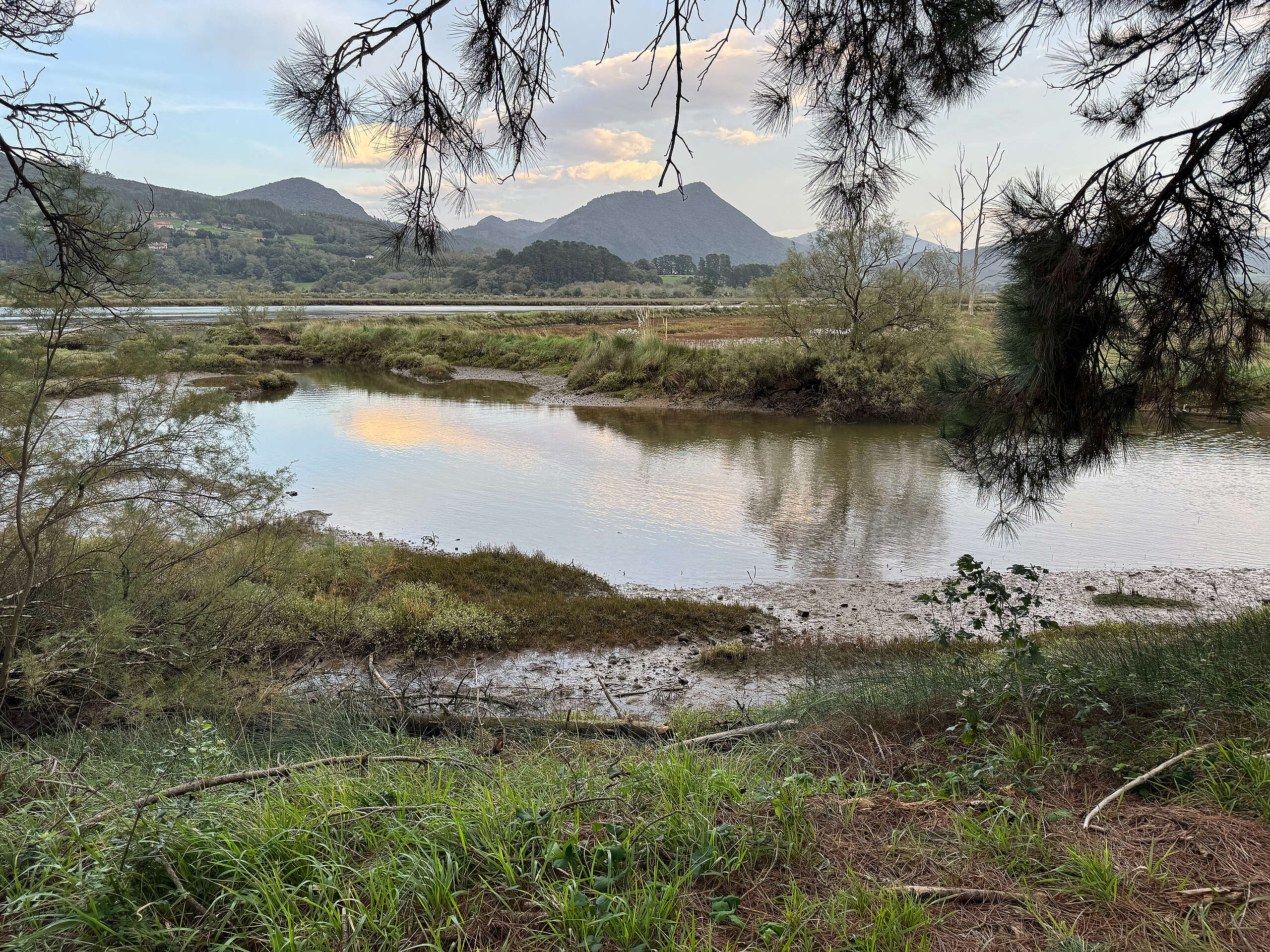If you didn’t live through the pipeline fights of the last decade, you might believe that the synergy between Mark Carney’s legislation to bypass environmental laws for resource mega-projects (Bill C-5) and endow the federal government with extraordinary new surveillance powers (Bill C2) is accidental.
Stop Bill C-2! Defend Human Rights, Not Border Panic
I’m skeptical. For the TLDR version, my argument is:
- Bill C5 (the Building Canada Act) is likely going to result in a new round of grassroots opposition from Indigenous land defenders and environmental activists to resource extraction projects fast-tracked under the new legislation.
- Bill C2 (the Strong Borders Act) grants the federal government new warrant-less surveillance powers that are not restricted to border-related issues, but can be used any time there is even a suspicion that any Act of Parliament might be contravened.
- The history of RCMP surveillance and repression of land defenders (particularly but not exclusively Indigenous) suggest that these powers will be misused.
Why Bill C5 will likely result in new round of grassroots opposition
Prime Minister Carney has been very clear that he wants to use this legislation to approve new oil and gas extraction projects and pipelines, which is going to run into resistance from environmental and Indigenous groups.
The Building Canada Act is intended to fast-track projects that are designated as being in the “national interest.” Once a project is on that list, they won’t have to go through the regular approvals process and can be exempted from meeting the requirements of environmental legislation. It does this in four key steps.
- Projects are identified and listed as a “national interest project”
- All federal approvals for the national interest project are deemed to have been made in favour of the project (even if it won’t meet the minimum standards set out in environmental laws).
- The project proponent is to take all measures necessary to fulfill those (lesser) federal approval obligations and consult with Indigenous groups (after the project has been approved and possibly with very limited information on potential impacts).
- The Minister issues an approval document that is deemed to include all required authorizations.
This bill continues a disgraceful legislative trend of undermining Indigenous rights. The Minister must consult with Indigenous Peoples before recommending a project to be included as a “national interest project”, but there are no parameters outlining the process for consultation and (crucially) the concept of consent has been removed from the equation.
This has led to strong resistance from Indigenous leaders reminiscent of the Idle No More opposition to the Harper government’s comparable 2012 omnibus bill. Carney’s attempt to reassure Indigenous leaders has not been convincing.
If Indigenous leaders call for a new round of “Shut Down Canada” actions, there will be no shortage of support from settler Canadians and environmental groups.
How Bill C2 grants new surveillance powers
The new surveillance powers are buried in the Strong Borders Act (Bill C2), which is ostensibly about cracking down on drug traffickers and migrants as part of an effort to appease Trump so that he will remove his tariffs.
With this legislation, we risk becoming what we should be resisting. Amnesty International has argued that Bill C2 “is congruent with the Trump administration’s vicious assault on refugee and migrant rights and its efforts to paint newcomers in a negative light” and is likely inconsistent with multiple refugee and asylum obligations Canada has under international human rights law.
For those reasons alone, Bill C2 should be withdrawn, but the bill also expands surveillance powers. An open letter from over 150 lawyers, academic experts and advocacy organizations calling on the government to withdraw the bill states:
“Bill C-2 is a multi-pronged assault on the basic human rights and freedoms Canada holds dear. It is likely unconstitutional, and deeply out of step with the values Canadians expect our government to embody and respect. While framed as a border security bill, C-2 actually weakens our constitutional foundations on firmly domestic matters, including an enormous and unjustified expansion of power for police and CSIS to access the data, mail, and communication patterns of people across Canada.”
If Bill C-2 passes, Canadian police and spy agencies will be able to demand information about peoples’ online activities without a warrant based on the very low threshold of “reasonable suspicion” that any federal offence has been or will be committed (i.e. it is not limited to drug smuggling or other cross-border offences).
This means that police and CSIS (the Canadian spy agency) will be able to find out whether you have an online account with any provider of services to the public in Canada. This would include not just telecommunication companies, but also banks, hotels, rental car companies, streaming services and health care providers. They can demand to know how long you’ve had it, where you’ve logged in from, and which other services you’ve interacted with. Furthermore, the provider of service would not be allowed to tell you that they have shared this information.
The bill also allows for the introduction of permanent encryption backdoors, i.e. electronic service providers can be obligated to install equipment that will enable law enforcement access to, and the ability to extract information from, the provider’s service. This could effectively turn service providers into an extension of law enforcement or governmental agencies.
The legislation doesn’t just make us more Trump-like – it would allow the Trump administration to access the newly-gathered information. The legislation references data-sharing with other governments, and Canadian officials have acknowledged that the intent of certain provisions within Bill C-2 is to enable Canada to implement and ratify a new data-sharing treaty with the United States (and potentially other countries). Given what is happening south of the border, it is not unreasonable to expect that the U.S. federal or state governments could demand information on, for example, if a person has accessed abortion services in Canada.
History tells us that these powers will be misused to surveil and repress land defenders
The RCMP has been infiltrating and spying on Black and Indigenous organizations since the 1970s, with the resultant negative publicity leading to a Royal Commission that reported on RCMP wrongdoing in 1981. It has also engaged in ‘dirty tricks’ such as blowing up a building belonging to an oil company in 1998 to raise public anger by spreading false information about who was behind it (with the full cooperation of the oil company).
What is relatively new, as documented by professors Jeffrey Monaghan and Kevin Walby in their journal article “Surveillance of environmental movements in Canada: critical infrastructure protection and the petro-security apparatus”, is how peaceful land and water defenders opposing new fossil fuel infrastructure have been redefined as security threats:
“Environmentalists, along with other protest groups – notably indigenous peoples – are now a fixture in intelligence products produced by national security agencies. If individuals are publicly opposed to the energy sector, they will be placed under surveillance by the national security apparatus… Persons construed as threats to critical infrastructure and who raise questions about the need for pipelines are categorized as threatening outsiders and targeted for surveillance and future criminalization.”
This is clear in an internal 2014 RCMP document obtained by Greenpeace Canada that warned “violent anti-petroleum extremists” driven by an “anti-petroleum ideology” pose a criminal threat to Canada’s oil and gas industry. As reported by the Globe and Mail, the RCMP downplayed the scientific reality of climate change and emphasized the economic benefits of oil and gas:
“The report extolls the value of the oil and gas sector to the Canadian economy, and adds that many environmentalists “claim” that climate change is the most serious global environmental threat, and “claim” it is a direct consequence of human activity and is “reportedly” linked to the use of fossil fuels.”
One of the issues of concern is how the lines between peaceful, democratic protest and violent extremism are deliberately blurred to “conflate social movements with extremism and criminality”. This has been detailed by Monaghan and Walby, but can also be seen in the RCMP threat assessment referenced above and a related presentation (also obtained by Greenpeace Canada) from the RCMP Critical Infrastructure Intelligence Team to oil companies, entitled “Critical Infrastructure Protection A Public/Private Shared Responsibility”:

Slide 2 of RCMP presentation “Critical Infrastructure Protection A Public/Private Shared Responsibility” to oil companies.

Slide 15 of RCMP presentation “Critical Infrastructure Protection A Public/Private Shared Responsibility” to oil companies.

Slide 26 of RCMP presentation “Critical Infrastructure Protection A Public/Private Shared Responsibility” to oil companies.
As documented by professors Monaghan and Walby, this framing of the oil industry as inherently good and in the national interest versus the dangerous activists has led to an unprecedented level of cooperation and institutionalized information sharing between the police, oil companies and private security firms.
The RCMP regularly circulates threat assessments to oil companies and companies are able to upload their incident reports directly to RCMP databases. Oil industry executives have been granted security clearances to allow them to view classified documents and there is a semi-annual Energy and Utility Sector Stakeholders briefing organized by CSIS and Natural Resources Canada to share information.
Of course we only know of cases where the surveillance has been exposed, but there is no shortage of examples:
- In 2012, the RCMP spied on a group of British Columbia First Nations opposed to Enbridge’s Northern Gateway pipeline proposal. In 2014, Canada’s spy agency (the Canadian Security Intelligence Service) helped the federal government prepare for protests over the same pipeline.
- In 2014, the RCMP’s “Project Sitka” began gathering information on Indigenous activists, ultimately identifying 313 activists — attendees of protests on issues ranging from natural resource development to missing and murdered indigenous women — who it claimed potentially posed a “criminal threat to Aboriginal public order events.” The RCMP then distributed profiles of 89 individuals it said met “the criteria for criminality” to police forces across the country. All of this in spite of the fact that Project Sitka found no direct threats to critical infrastructure and no connection to organized crime associated with Indigenous protests.
- In 2023, the RCMP hired a private security firm to spy on Fairy Creek activists.
- Surveillance campaigns can be part of a broader program of harassment designed to intimidate land defenders. Amnesty International has documented the years-long campaign of violence, harassment, discrimination, and dispossession against Indigenous Wet’suwet’en land defenders resisting the construction of Coastal GasLink (CGL) liquified natural gas pipeline through their unceded ancestral territory without their free, prior and informed consent.
Bill C2 grants police and spy agencies new powers that will likely be used against environmental and Indigenous activists and organizations in order to defend oil and gas infrastructure projects not just from physical threats, but also public criticism (e.g. by framing concern over climate change as an “anti-petroleum” ideology).
One of the underappreciated aspects of Bill C2, in my opinion, is how the ability to not only track individuals but to know what other services they are accessing could allow the police and intelligence agencies to more easily map the networks of activists working to oppose new resource projects. This is enormously useful information, if the security apparatus wants to not just surveil, but also infiltrate and disrupt social movements.
In addition, this information could (potentially) be shared with oil and gas companies and private securities firms through the existing, formalized information exchange systems established over the last decade.
Assurances that new powers won’t be misused are unconvincing
When the Conservative government of Stephen Harper introduced similar surveillance legislation to those in Bill C2, the then-opposition Liberals cried foul and the bill was withdrawn over privacy concerns.
With both Bill C5 and Bill C2, the Liberals seemed to be insulted that anyone would suggest they might misuse the extraordinary powers that they are granting themselves. But even if you believe that is the intent (a big “if”), the new surveillance powers will be used by police and spy agencies with little oversight.



